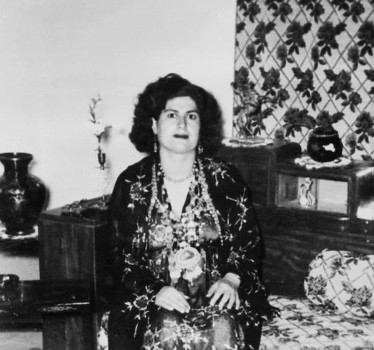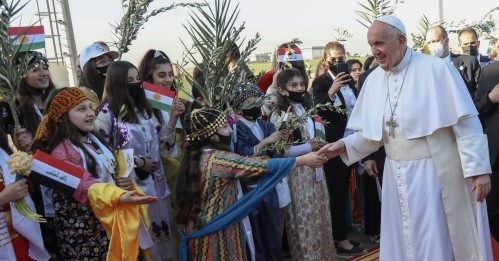In this article, Richard Wilding examines relations between the Kurds and the British in the years following World War I. His research uses the written accounts and photographs of British administrators based in Kurdistan, as well as interviews with Kurdish historians and the descendants of Kurdish leaders.
Following the Ottoman Empire’s defeat in World War I, Britain gained control of the three former Ottoman vilayets of Mosul, Baghdad, and Basra. However, since the British occupied Mosul after the armistice was signed, Turkey continued to claim the Mosul vilayet, together with its mainly Kurdish population, until 1926. To counter Turkey's claims, Britain proposed the establishment of one or more autonomous Kurdish provinces within the Mosul vilayet that would be loosely attached to any future administration in Baghdad.
In their search for a figure with widespread public support to head this Kurdish region, British political officers had been in contact with prominent Kurds, in particular with Shaikh Mahmoud Barzanji (1878-1956), the head of the leading Saiyid family of Southern Kurdistan.
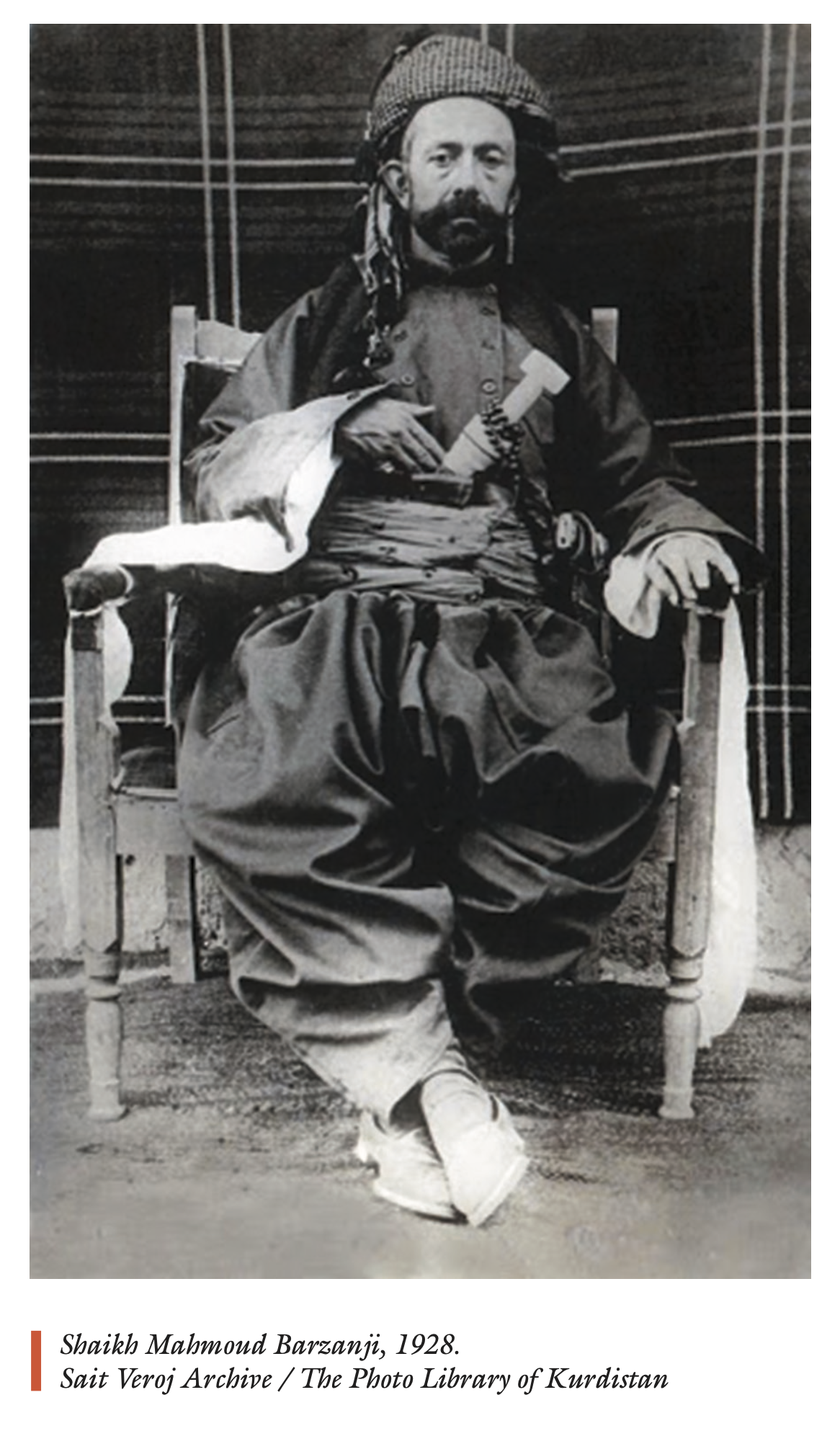
In addition to being a saiyid (an honorific surname bestowed upon descendants of the Prophet Muhammad), Shaikh Mahmoud was also the head of an important branch of the Qadiri Sufi order. Sufi Shaikhs of outstanding personality are commonly credited with the power of working miracles, attracting the veneration of their followers. They and their descendants have, in consequence, often acquired considerable worldly power.

The British sent Major Edward Noel to Suleimani, instructing him to establish a temporary system of administration under Shaikhh Mahmoud. In November 1919, the British Secretary of State informed the British Civil Commissioner in Baghdad that:
Kurdistan must be left to its own devices, and the practical question is how this can be done consistently with peace and security on the Mesopotamian frontier. We are advised by Noel that there are three essential conditions: (1) that Turkish authority should be excluded from Kurdistan; (2) that Kurdistan should not be partitioned; and (3) that the frontier should follow as nearly as possible the ethnological line between Kurds and Arabs. Noel’s view is that Kurds, if left to themselves, will be strongly pro-British and will need no encouragement or assistance from us to keep the Turks out.
However, Major Noel’s colleague Cecil Edmonds questioned whether Shaikh Mahmoud understood the role that the British had in mind for him:
I have no doubt that Shaikh Mahmud saw… a benevolent British Government intervening, not to exercise any control over his… rule, but only to prevent the Persian and the future Arab Governments from interfering…
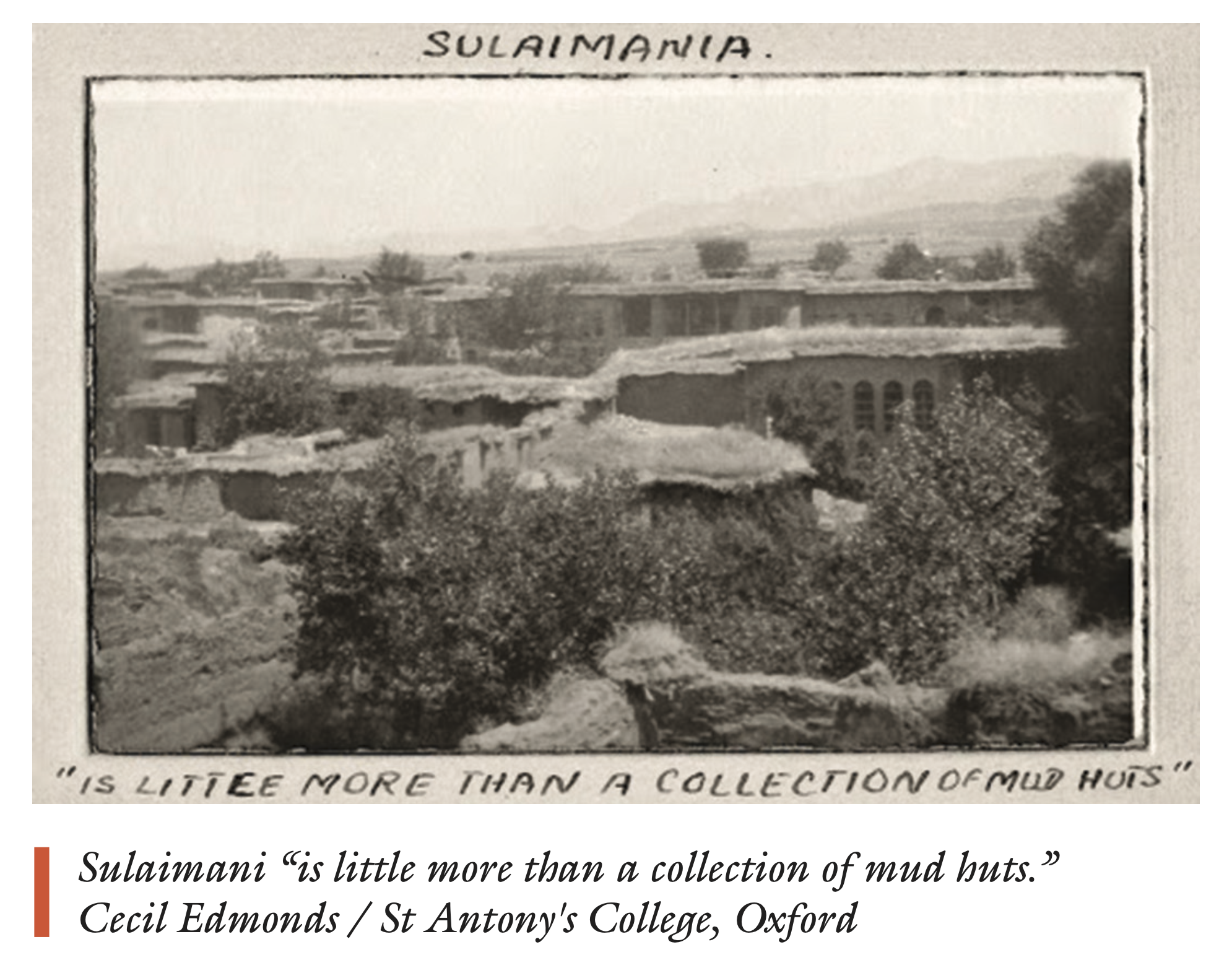
When Major Noel arrived in Suleimani, the town was in a bad way, with corpses lying in the streets and empty houses. According to some sources, just one quarter of the town’s population had survived a famine of 1914-18. Noel’s first duty was to provide food and clothing for the destitute, and these humanitarian services were recalled with gratitude in later years.
Shaikh Mahmoud was informed that any Kurdish tribes wishing to accept his leadership would be allowed to do so. He was given the title of hukmdar (ruler), with a British political officer (PO) to ‘advise’ him. However, in April 1919, Major Noel was replaced by Major Ely Banister Soane. A man of very different temperament, Soane imposed a direct administration more like the rest of the occupied territories of Mesopotamia.

Sensing that he was about to lose much of his autonomy, Shaikh Mahmoud organized an uprising. He was joined in this rebellion by the Hamawand tribe, some sections of the Jaff tribe, and the 16-year-old future Kurdish leader Mustafa Barzani. Surprising Suleimani at dawn on May 23, 1919, in a few hours Mahmoud had imprisoned the British personnel, seized the Treasury, and hoisted his flag (a red crescent on a green background) in place of the Union Jack.
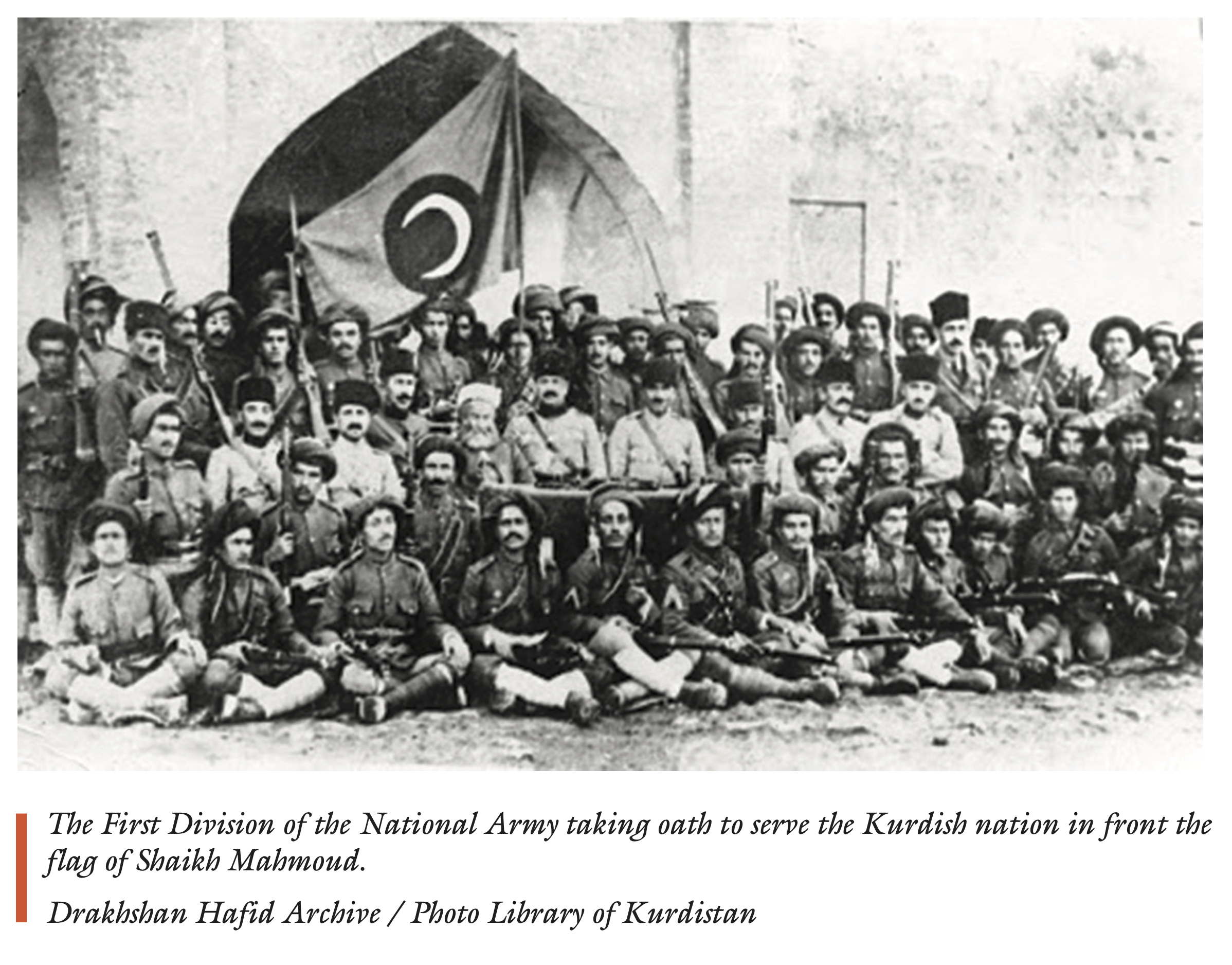
A small garrison of British troops was stationed at Kirkuk, and their commanding officer received orders to send a detachment as far as Chamchamal. However, he underestimated the fighting capabilities of the Kurds and decided instead to advance on to Suleimani with cavalry, armored cars, and Ford vans equipped with Lewis guns.
As they reached the Tasluja pass, twelve miles from Suleimani, the British forces were unexpectedly attacked from all sides and compelled to withdraw. The pursuing Kurds relentlessly followed the retreating British troops for twenty-five miles, inflicting severe casualties.
This humiliation of the British convinced many waverers to join Mahmoud’s cause. Even across the Persian border, tribes rose up against their government, demanding incorporation into a Kurdish state under the Shaikh. It was now clear that a full-scale operation would be required by the British to retake Suleimani.

Cecil Edmonds was to accompany the expedition, which left Kirkuk for Chamchamal on June 15, 1919. The next morning, Edmonds was up at half-past three for a reconnaissance towards the Bazian Pass, which Shaikh Mahmoud was reported to be holding on both sides. Edmonds described the dramatic setting for the pending confrontation:
“In the clear morning light… we could see the long wall of the Qara Dagh coming up from the south-east, dipping down in front of us to form the V-shaped gap that has been the scene of so many locally decisive battles…”
On June 18, before daybreak and in complete silence, the British infantry began to scale the heights on either side of the Bazian Pass and had nearly reached the top when, with the first light of dawn, their guns opened fire.

Edmonds says little of the battle itself but goes on to describe how he questioned two captured Kurdish officers, who had both seen Shaikh Mahmoud injured. He then received a note saying that a well-dressed Kurd, evidently a person of some importance, had been found lying wounded by the roadside. Edmonds found the man a little farther along, describing him as “wearing voluminous Kurdish trousers tucked into top boots of Russian pattern…one boot was ripped open at the ankle and blood was oozing through his shirt at the waist.”

Captain Bond, the A.P.O. for Chamchamal, was sent to Bazian to identify the distinguished prisoner and on arrival confirmed that it was indeed Shaikh Mahmoud. A statement published by the British on August 3 announced that the whole of Southern Kurdistan had been pacified. Shaikh Mahmoud, as soon as he had sufficiently recovered, was tried by military court for rebellion and condemned to death. The sentence was later commuted to one of ten years' imprisonment, and he was exiled to India. But this was not the end of Shaikh Mahmoud.
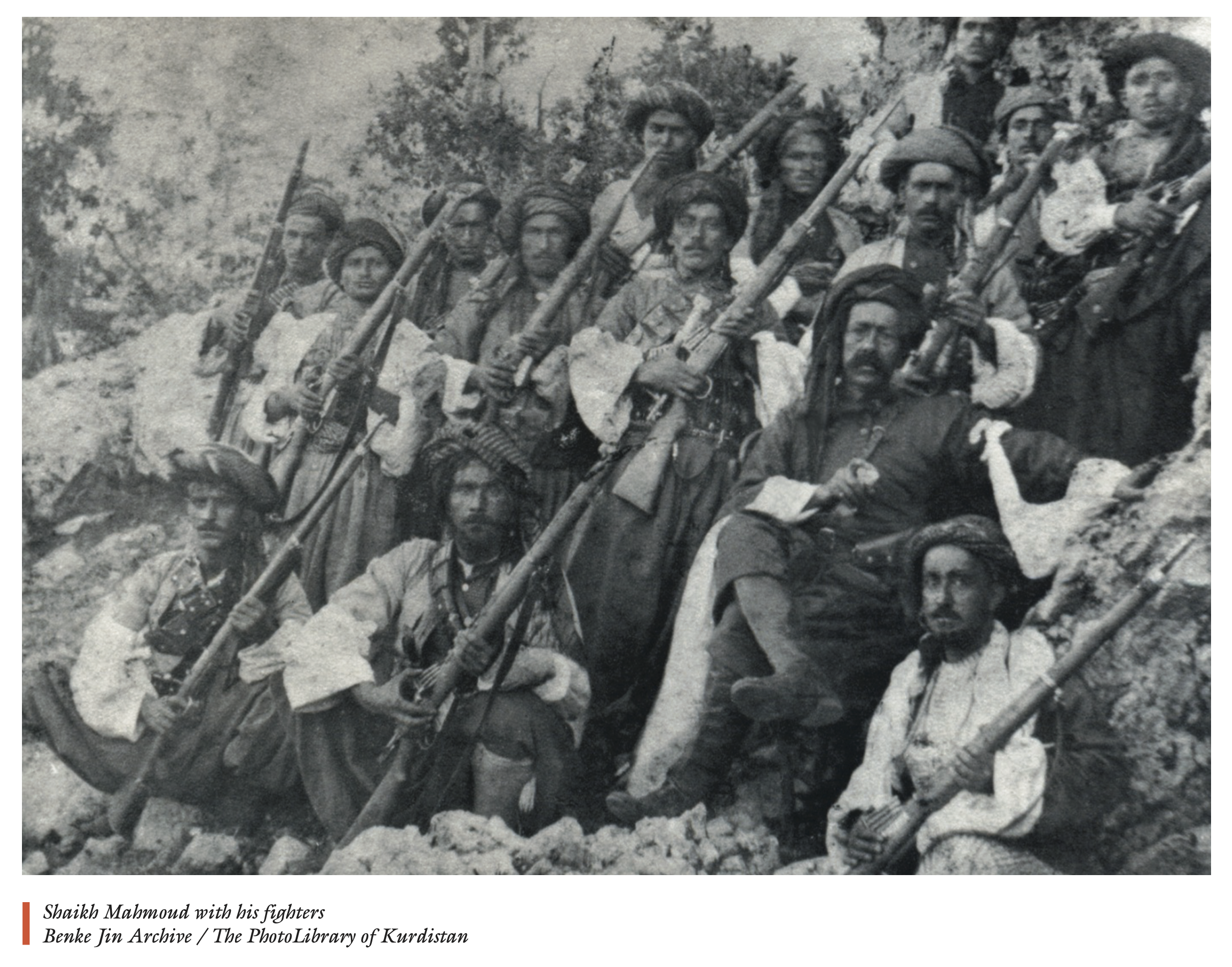
Richard Wilding produces award winning exhibitions, films and books that explore the history and heritage of Kurdistan and other regions of the Middle East.
Since 2012, Richard has been Creative Director of Gulan, a charity which promotes Kurdish culture in the UK. In 2021, he was elected as a Fellow of the Royal Geographical Society, London.
Richard is currently producing a film about Shaikh Mahmoud and 100 years of Kurdish / British relations.
